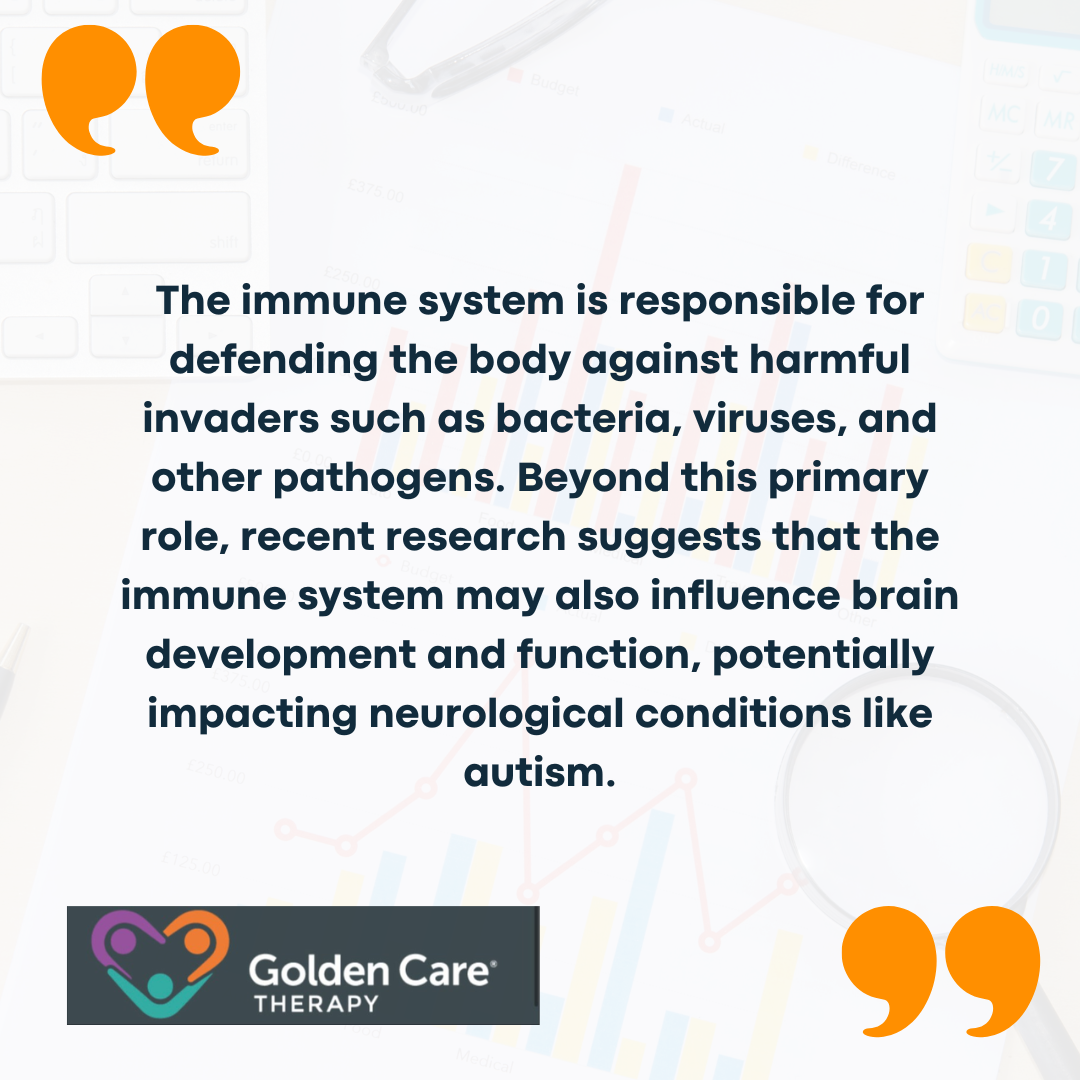Autism spectrum disorder (ASD) is a complex neurodevelopmental condition that affects communication, behavior, and social interaction. Researchers have long been investigating various factors that could contribute to the development of ASD, including genetic, environmental, and immune system factors.
In recent years, the relationship between the immune system and autism has garnered significant attention due to emerging research suggesting a potential link. This article aims to explore the current understanding of how the immune system may be involved in autism, supported by relevant studies and findings.
What is Autism Spectrum Disorder?
Autism spectrum disorder (ASD) encompasses a range of conditions characterized by challenges with social skills, repetitive behaviors, speech, and nonverbal communication. The term “spectrum” reflects the wide variation in challenges and strengths possessed by each person with ASD.
While the exact causes of ASD are still being studied, it is widely accepted that both genetic and environmental factors play a role in its development.
The Role of the Immune System in Autism

Several studies have reported abnormalities in the immune function of individuals with ASD compared to neurotypical individuals. These abnormalities include heightened immune responses, inflammation markers, and differences in immune cell profiles.
For instance, researchers have found elevated levels of cytokines – proteins involved in immune signaling – in the blood and cerebrospinal fluid of some individuals with autism.
One study indicated that microglia, the brain’s immune cells, may be activated differently in individuals with ASD, potentially contributing to altered brain development and function. This activation could lead to chronic neuroinflammation, affecting neural circuits involved in communication and behavior.
Autoimmunity, where the immune system mistakenly attacks the body’s own tissues, has also been explored in relation to autism. Some studies suggest that individuals with ASD may have higher rates of autoimmune disorders, such as autoimmune thyroiditis or celiac disease, compared to the general population.
This association raises questions about whether immune dysregulation could contribute to both autism and autoimmune conditions.

Maternal Immune Activation Hypothesis
One influential theory linking the immune system and autism is the maternal immune activation (MIA) hypothesis.
According to this hypothesis, exposure to certain infections or immune activation during pregnancy could influence fetal brain development and increase the risk of autism in offspring. Animal studies have provided supporting evidence, showing that immune activation during pregnancy can lead to behavioral and neurological changes resembling autism in offspring.
A study demonstrated that activating the maternal immune system in mice during pregnancy led to offspring displaying autism-like behaviors, such as social interaction deficits and repetitive behaviors.
While findings from animal studies cannot directly translate to humans, they provide valuable insights into potential mechanisms that researchers continue to explore.

Genetic Links Between the Immune and Nervous Systems
Genetic studies have also uncovered overlapping genetic risk factors between immune-related genes and those associated with autism.
For example, certain genes involved in immune responses and inflammation have been implicated in both conditions. This genetic overlap suggests that shared biological pathways may contribute to the development of both immune dysregulation and autism.
The link between the immune system and autism is a promising area of research that holds potential implications for understanding the origins of ASD and developing targeted treatments. By further investigating immune dysfunction in individuals with autism, researchers hope to identify biomarkers that could aid in early diagnosis or predict treatment responses.
Additionally, exploring interventions that target immune pathways could offer new therapeutic approaches for individuals with ASD who experience immune-related symptoms or conditions.
While much remains to be understood about the complex interplay between the immune system and autism, emerging research provides compelling evidence of their connection. Immune dysregulation, inflammation, and genetic factors appear to play significant roles in the development and manifestation of autism spectrum disorder.
Continued research efforts aimed at unraveling these mechanisms hold promise for advancing our understanding of autism and improving the lives of individuals affected by this condition.
Through interdisciplinary collaboration and further investigation into immune-brain interactions, scientists aim to shed light on the underlying causes of autism and pave the way for more targeted therapies and interventions in the future.
As our understanding evolves, so too does our ability to support and empower individuals on the autism spectrum and their families.
Sources:
https://www.nature.com/articles/npp2016158
https://autism.org/immune-system-function-autism
https://theplaceforchildrenwithautism.com/autism-blog/autism-the-immune-system

